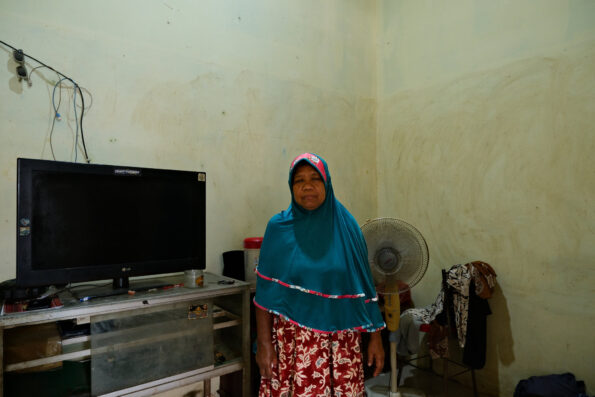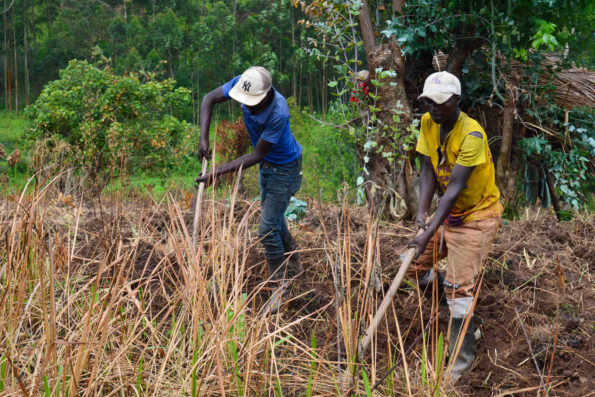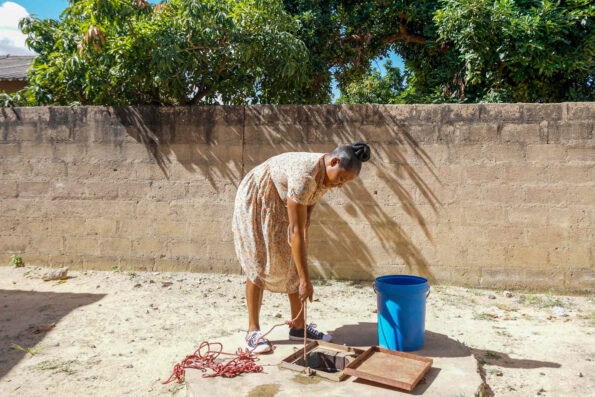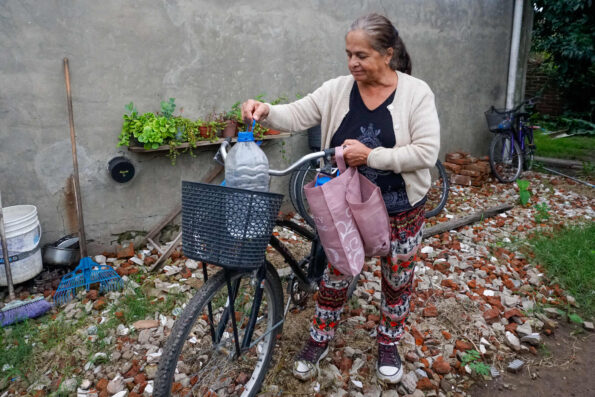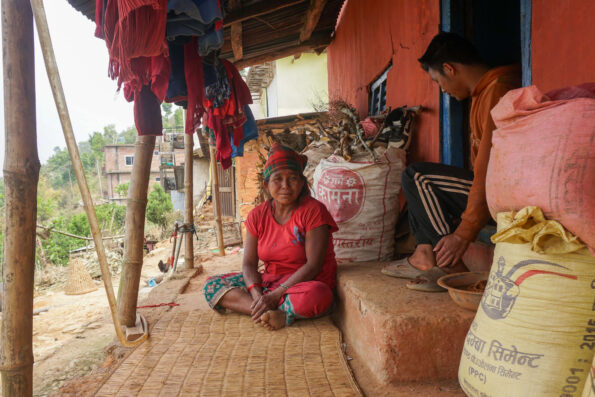
Nadia Kanyere, GPJ DRC
In Kisangani’s Kabondo quarter, plastic bags used at the market cover the streets. Residents say plastic bags are responsible for filthy streets and even infertile soil.
KISANGANI, DEMOCRATIC REPUBLIC OF CONGO — Wivine Moseka, 40, a widowed mother of four, plants vegetables in the small gardens on her land. Those vegetables are the primary sustenance for her family.
“Farming is my life,” she says. “I rely on this garden to feed the kids left behind by my late husband.”
But farming is becoming a less reliable source of livelihood here thanks to an invasive pest infesting the soil: plastic bags.
Plastic bags are the most common type of packaging here and littering is also common. People bury plastic bags in the soil after use too, and it’s taking a toll on the fertility of the land.
“I do everything I can to provide for my family but my farming activities remain hamstrung by plastic bags which kill the fertility of my soil,” Moseka says.
She spends hours with a machete trying to unearth plastic bags that have become intertwined with the soil and prevent her from planting successful crops in her garden.
“I used to get rid of weeds in my vegetable garden manually, and my crops could grow well as a result of hand-weeding. Today, however, the plague of plastic bags overrunning the city have built up in the soil, becoming the bane of our land fertility,” she says. “My hands can no longer help me unearth the plastic bags, as the only successful way in order to ward them off is to use a machete.”



The Boyomese, the name given to the inhabitants of Kisangani, say the city is being overrun with plastic bags. And local farmers, like Moseka, say plastic bags are having a direct impact on vegetable yield in gardens across the city affecting neighbors and their families.
“Before, I could earn as much as 10,000 Congolese francs ($6),” Moseka says referring to her crops just a few years ago. “And today, I only earn 1,000 Congolese francs (60 cents). The big drop in my vegetable garden yield is the worst disaster ever to befall me.”
In Kisangani, the capital of the Tshopo Province in central DRC, plastic bags are the most common packaging materials. Like many other African countries, DRC has a plastic bag ban, but unlike other countries, like next-door Rwanda, the law is completely ignored here. Locals say they aren’t even aware of the law, which leaves plastic bags everywhere, causing environmental pollution and affecting soil fertility.
Seventy percent of Boyomese people use plastic bags in their daily life, and waste management is an ongoing challenge for the city, says Michel Bafoe, adviser to the Minister of Agriculture and Environment. Plus, plastic bags can take between 10 and 1,000 years to break down.
“Needless to say, plastic bags are a threat to our soil,” he says.
Augustin Osumaka, the mayor, implemented a garbage and waste collection brigade to help eliminate trash in the city three years ago, but it hasn’t had an impact on the amount of plastic bags littered throughout the town, Bafoe says.
The impact of the waste on small-scale farmers can be devastating, he says. Ten percent of people in Kisangani own gardens to supply themselves and neighbors with vegetables. Kisangani is an isolated city, accessible by air or via the Congo River so imported goods and foods are expensive. Across the city, farmers say their crop yields are decreasing as the soil, clogged with plastic, loses its fertility.
Jonathan Mwadi, a student in the ecology department at the University of Kisangani, says plastic bags not only pose a risk to farmers, but they also make the city visually undesirable.
“I believe, without used plastic litter, the city of Kisangani would be one of DRC’s most beautiful cities,” he says.
But local business owners, like Christine Kirongozi who sells soap in town, say merchants find plastic bags indispensable for their daily business.
“When customers buy soaps, I take pride in handing them their goods in plastic bags because these are the only packaging materials at our disposal,” Kirongozi says.



Maurice Kabamba, who lives in Kisangani’s Kabondo neighborhood, says it’s time the local government took steps to control waste management in the city.
“I think authorities should examine ways of managing waste to quell this scourge,” he says.
Solving the problem will require a collective effort, Bafoe says.
The government is considering implementing new sanitation measures, but local people will have to stop littering and learn to manage plastic waste properly, without burying it in the ground, he says.
For one student, Trésor Kanda, in the faculty of agronomic sciences at the Université de Kisangani, a university in Kisangani, the solution should start in the classroom.
“Teachers at all levels should teach students how to properly manage plastic bag waste by putting waste bins at their disposal, and inculcate in them the habit of disposing of waste in appropriate places,” she says.
Ndayaho Sylvestre, GPJ, translated the article from French.


